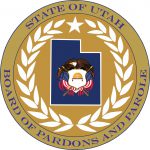Utah Board of Pardons & Parole
Brief History of the Board
1896
Pardons and Statehood
The Board of Pardons was established soon after Utah became a state in 1896. It consisted of the Governor, the five Supreme Court Justices and the Attorney General.
1897 - 1898
Pardons and Commutations
Thirty two (32) individuals were pardoned and three sentences commuted between 1897 and 1898. Initially, prisoners could be paroled for good conduct which was authority vested with the State Board of Corrections.
1898
Role of Board of Corrections Checked
The Supreme Court ruled it unconstitutional for the Board of Corrections to parole inmates. After the decision, the Board of Corrections recalled the inmates they had paroled and refused to grant any further paroles.
By 1900
Turn of the Century Data
By 1900, three paroles had been granted in total, along with six commuted sentences and 81 pardons. This pattern quickly adjusted in the early 1900s where it became much more common to see paroles rather than pardons.
1918
Utah’s First Parole Agent?
In 1918, sixty five (65) men were released under the supervision of Warden George A. Storrs – as parole agents didn’t exist. Warden Storrs took on this responsibility along with his other responsibilities serving as warden.
Prior to 1928
First Parole Agent
Sometime prior to 1928, Owen Nebeker took the job of parole agent. By 1928, there were 74 parolees.
1937
Parole Department Created
In 1937, the Utah Adult Parole and Probation Department was created under the management and control of the Board of Corrections. Oscar E. Lowder served as the Chief Agent.
1977
Adding Members
Board consisted of three part-time members and three pro tempore members
1983
Full Time
Board consisted of three full-time members and three pro tempore members
1985
Governor Appoints
The Governor and not the Board of Corrections appoints the Board
1986
Jurisdiction Scope Changes
Jurisdiction expanded from felony cases to restitution and class A misdemeanors
1988
Victim Notification
Board required to notify victims of an offender’s parole hearing
1990
Most Current Board Organization
Board consists of five full-time members and three pro tempore members with staggered five year terms. Chairperson appointed by Governor for indefinite term
1992
Commutation Restricted
Commutation power of the Board of Pardons restricted. Death sentence may only be commuted to “life witout parole”
1993
Name Change
The Utah constitutional provision relating to the Board of Pardons was rewritten to include changing the name to the Board of Pardons and Parole.
2015
Justice Reinvestment
The Justice Reinvestment Initiative (JRI) established an Earned Time Program, Earned Compliance Program, and made changes to parole revocation
